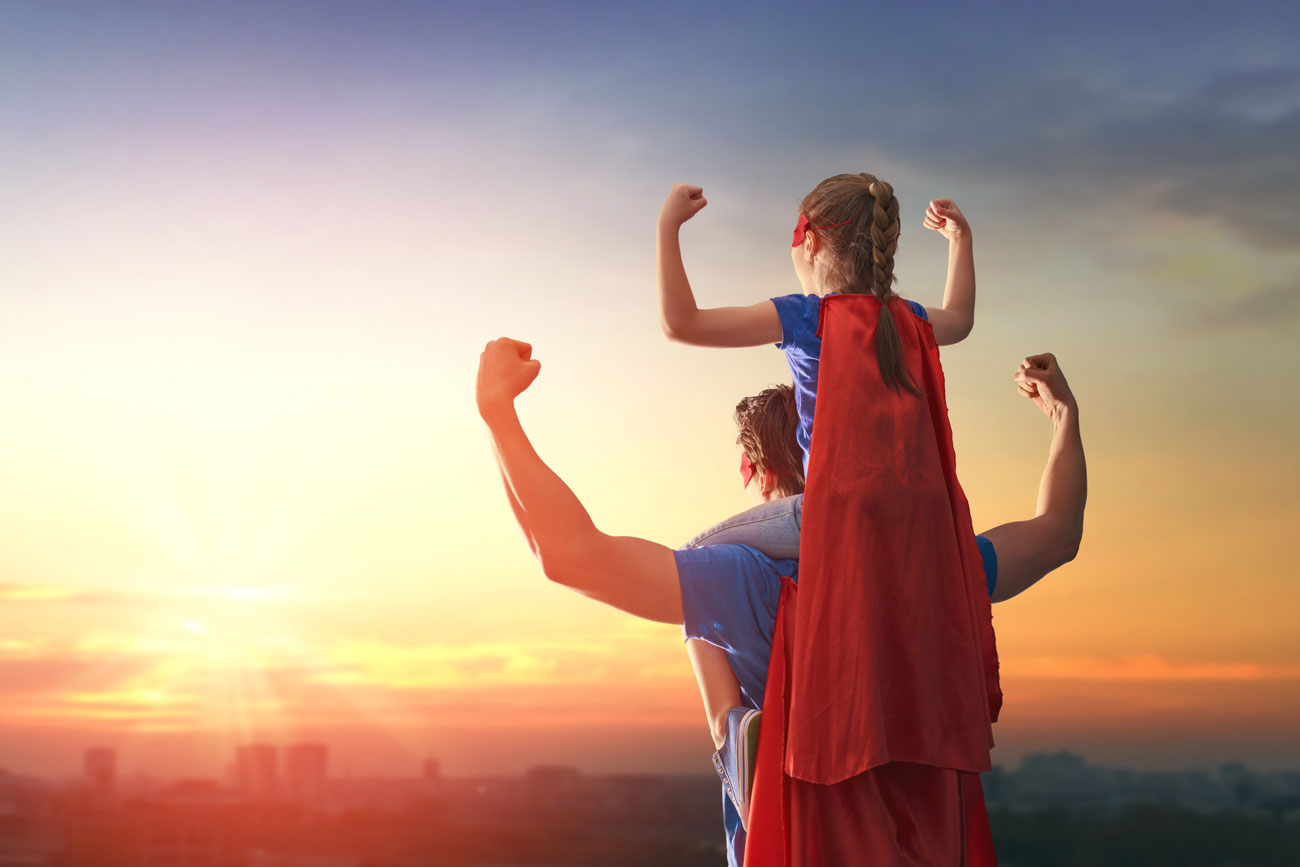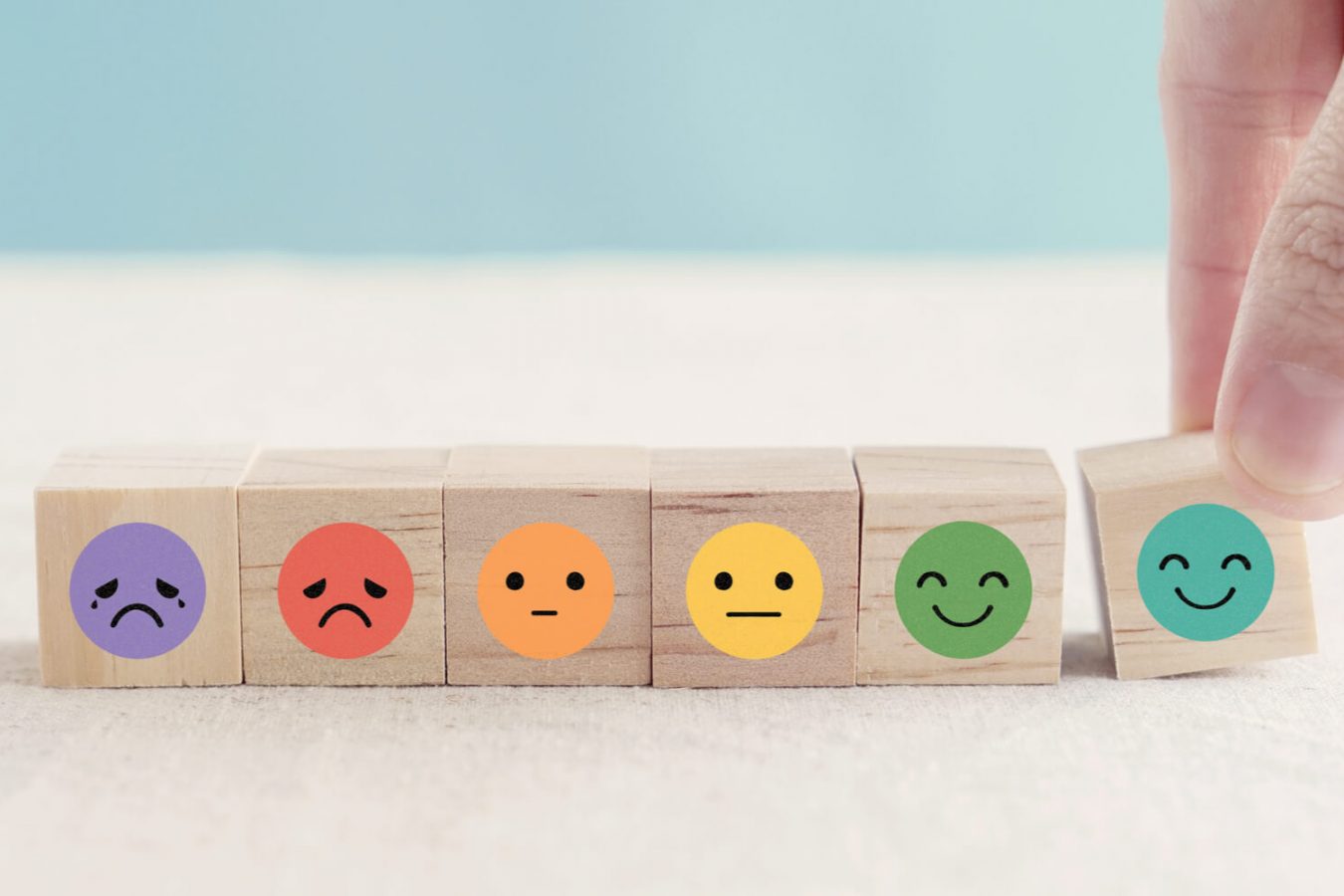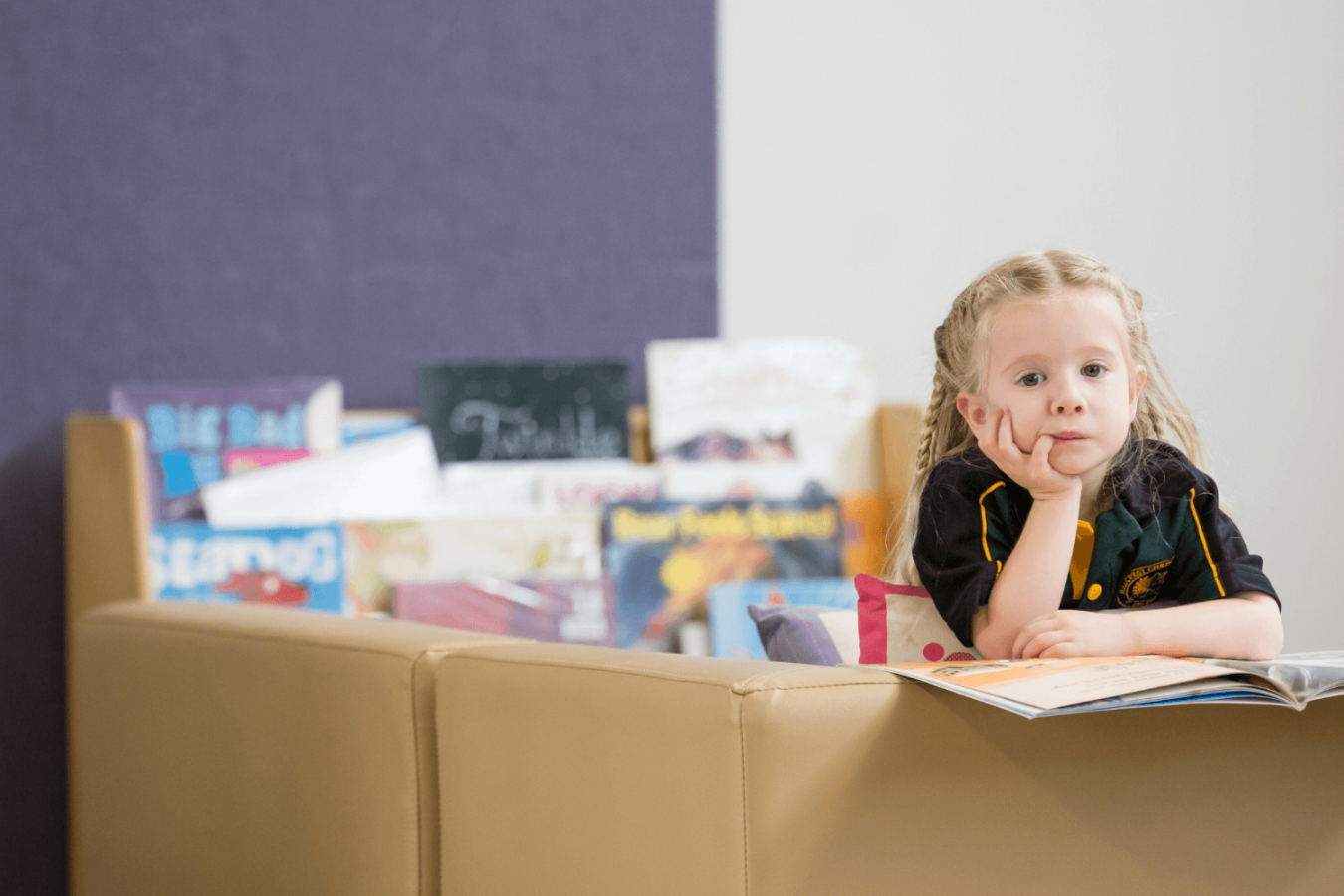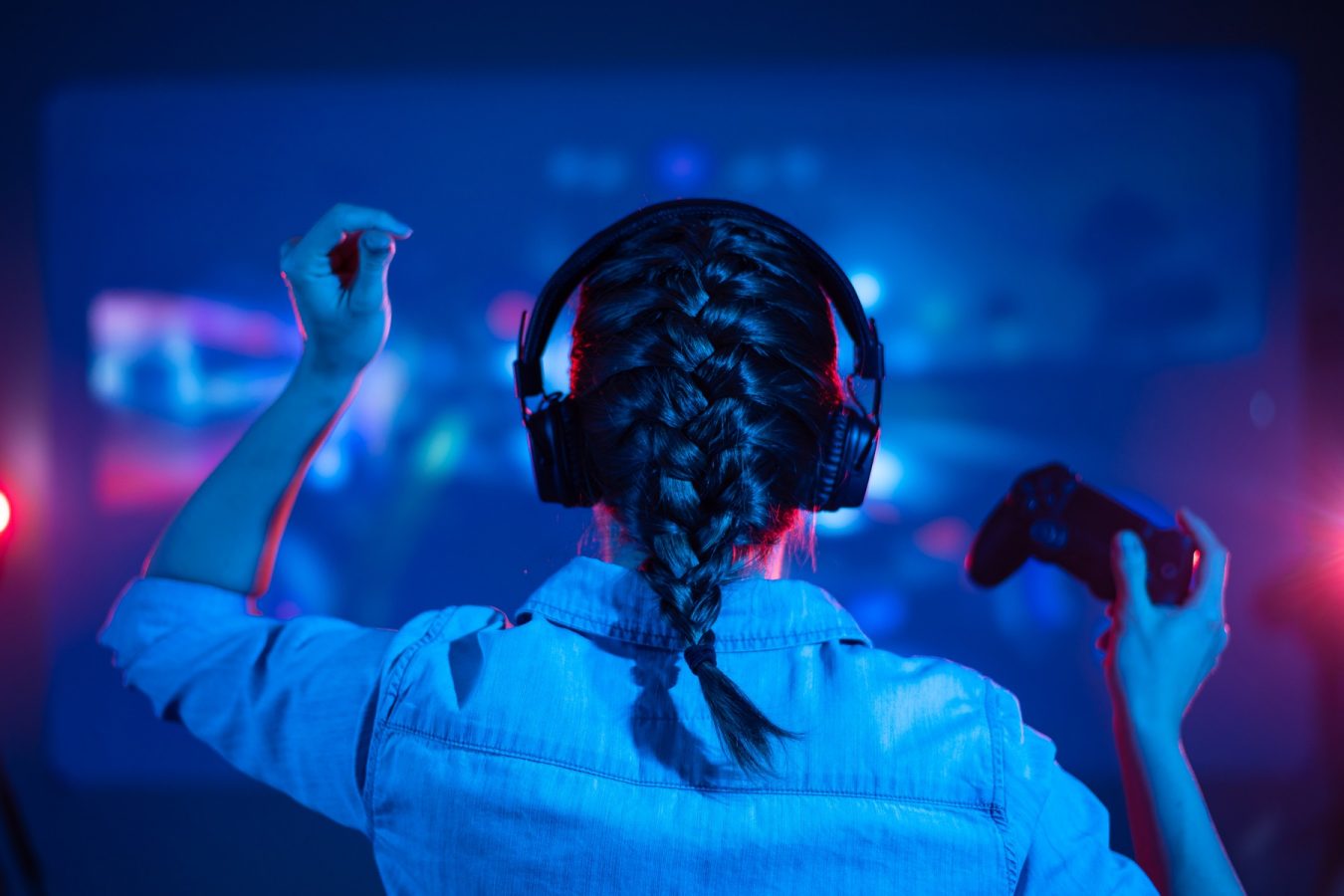
Leading clinical psychologist Andrew Fuller is seeing a worrying trend after lockdowns: young people opting out of challenging situations – including school. He tells Shane Green we need to encourage them to be bold.
As we adjust to the ‘new normal’ after two years of lockdowns and restrictions, Shane Green talked with Dr Andrew Fuller about how our children are coping, the challenges they face and what we can do to help.
An opt-out culture
Andrew, we’re now to the second half of the year and COVID lockdown seem to be a thing of the past, but I think it’s fair to say that for many people adjusting to the new normal has been a hard road. What are you seeing?
Andrew: A number of things. I think probably the most concerning that I see is a sort of opt-out culture that seems to have emerged out of this time.
It’s almost as if people have an idea that their contribution is not necessary or not needed, or everything is optional.
Adults seem to be doing this, but we see it reflected in children and teenagers as well.
What that means is that if something feels a bit uncomfortable or a bit difficult to deal with ‘Well, maybe it’s better that I don’t do it’.
The problem with that, of course, is that under normal circumstances, we all tackle difficult things.
Generally, we either go, ‘Well, that was not something I like to do, and I won’t do it again’, or more often, ‘Oh, well, it was not as bad as I thought’, or ‘I didn’t really like it, but it was okay’.
So we kind of habituate or get used to the things that basically challenge us or stress us.
But if we are in a world of opt-out where young people are going, ‘Well, I won’t do that’, because they avoid that, they then go ‘Well, I won’t do that as well because that’s a bit similar to the first thing that I’ve opted out of’.
What we find is that we have a group of young people who have heightened anxiety – because they’re not going through the experience of getting used to these things – from less and less stimuli.
So the risk, therefore, is that they’ve narrowed their kind of sphere of things that they do, but are still feeling highly anxious.
Building strong Communities of Courage
We’ve heard of JOMO, the Joy of Missing Out. But what you’re talking about here is actually something much more profound and deeper, isn’t it?
Andrew: Well, it’s a great concern. I think that it means for schools that we need to really think about culture in a much more powerful way and building strong communities of courage.
So what really is going to help us all to overcome this is being prepared to take that step of courage and sometimes do things that are difficult.
And if we don’t do that, if we shy away from it, not only are we in this perpetual land of anxiety, we are also limiting ourselves dramatically.
But right across the country, what I’m seeing are schools are talking about young people not showing up for class, but also not wanting to go on camp or going on particular activities.
And rather than kind of having parents feeling like, ‘Yes, well, we’ll try and encourage our young people,’ they are also, well, going, ‘Okay, we don’t really have to have do that, either’.
So you have this sort of major issue, which is sort of one where people are avoiding a whole lot of important rituals in their lives.
LISTEN TO ANDREW'S INTERVIEW ON ISPODCASTEncouraging young people to take on challenges
Lots of people would say, ‘Well, that’s completely understandable given the past two years where we were really told to be frightened of everything we took for every day and normal’.
Andrew: And it is, that’s true and completely understandable, but it’s an aftershock, an after-effect.
When you think about what we want to have for the young people in our world, we want them to have a boldness, a sort of courage, a kind of sense of adventure about their lives.
So what we do at the moment is almost the reverse of that, and we need to really start to think in schools what’s the culture that we can build.
Now, all the things that we know is the people tend to do what other people around them do.
So, if we can actually embolden young people, empower them to take on challenges to do things that sometimes at first seem difficult, then everybody else goes along with it.
We need to think about communal actions, more than individual ones.
Using the CPR of Wellbeing
Are you getting any sense within schools and within communities that some people are recognising this and wanting to do something about it?
Andrew: Yes, definitely… As you probably know, I’ve done a lot of research on this area, which pointed to three major ingredients that when people feel connected to another, when they feel protected by one another or safe with one another, and when they feel respected by one another, they do well, the CPR of wellbeing.
So, thinking about those three components in a school community: basically, re-enjoining that sense of belonging to one another, thinking about how together we can collectively keep one another safe, and how we can respect our contribution and value it, as well as be more courteous and have a sense of good manners…
The impact on young children learning to read emotions
Are you seeing and hearing of specific things at different ages and year levels?
Andrew: It’s probably a little early to really nail it, but I think the fear, of course, is for our youngest children who learn a lot of their early emotional intelligence through sort of mirroring facial gestures or being on transport, or in shopping centres and catching the eye of a stranger and playing peek-a-boo type games, as well as having the sort of social commentary that parents do as they navigate around the world.
‘First, we’re going to go and buy some apples and then we’re going to go and pick up the laundry or pick up the dry cleaning’ or whatever it might be.
That’s gone missing. So, whether this will really result in a group of young children who are less equipped to read the emotions of the world is a concerning possibility.
So, I think the other thing that we need to really think about the youngest years is how do we ramp up the level of emotional knowledge or knowledge about feelings, particularly around just reading faces.
Because, otherwise, if we don’t read faces well, one of the risks is to interpret hostility and negativity where there isn’t any.
That then, of course, leads again to this fearful avoidance and anxiety so we could have a compounding problem.
Now, it’s speculative because, of course, we haven’t done any research on that early age range, but the likelihood of that give-and-take of facial recognition, of peek-a-boo, of sports commentary and so on, when it goes missing, then I think there’s a risk that we need to keep an eye on.
The need to reconstruct our communities
There has been discussion at various stages of the long-term impact on young people of the pandemic, of a COVID generation. Do you think that’s overblown or from what you’re saying, is that a real possibility?
Andrew: Well, I think there’s certainly a risk that we have been distant from one another for quite some time that we no longer really know how to be in community with one another.
And so unless we start to actively reconstruct those communities, then we have this very isolated sense.
Now that isolated sense means a growth in individualism that can be positive in terms of self-reliance, but can be negative in terms of blaming yourself, taking on individual responsibility and not really working and collaborating with others.
So, there is a risk that basically people no longer really know how to be face-to-face and spend extended periods of time with one another in a constructive way.
Towards a hybrid model of learning
There have been some positives out of the past couple of years. With young people, what have you noticed, some of the strong things to emerge where you think, ‘Oh, yes, that was something good that came out of that experience?’
Andrew: The first thing I think is that we learned that we matter to one another a lot, really. That we missed one another and I think we still do.
So, I think that those social occasions, while we tend to be a bit wary of them, are highly desired and particularly by young people. I suppose the group that probably of all of the young people that I work with are the early university students. I find that they are finding it incredibly difficult.
There’s another – I know it’s been said before – but what teachers managed to do in that very short period of time of accommodating to the needs of online learning and distant learning was just simply remarkable and so, we know that it works.
While it’s very tempting for us as schools to go back to now we can all go face-to-face five days a week, it may well be worth really properly starting to talk about whether a hybrid model is something that’s advantageous because not all online learning outcomes were bad.
In fact, some of them were very, very good and some of the lessons and some of the flexibility, was excellent.
Now, the other thing, of course, that forced upon some of our students was a degree of self-reliance that they weren’t necessarily used to.
While no doubt, some of them floundered around for a while as they adapted to that, it’s not a bad long-term effect to have more self-reliance among our students, if we can do it.
So we want to think about two almost competing things.
One is building a sense of community because we value one another and the other is trying to think about how we can build a sense of self-reliance in our learners so that they can become resilient learners.
In praise of our teachers
Now, you touched upon the remarkable role of educators and the ability of schools and teachers and school leadership to respond to remote learning. But, of course, we know that put them under enormous stress and it’s fair to say that stress has continued with the continuation of COVID and, of course, flu. What are you seeing among educators and among schools in terms of the stress levels?
Andrew Fuller: This profession really amazes me at times. I think that their commitment to their students is remarkable and I want to really take my hat off to teachers.
I think it’s easy to kind of talk about all the difficulties that we’re faced and we have, but in spite of all of the challenges, one of the things that I really noticed was that teachers, by and large, held the interests of their students as top priority and would do almost anything that they could to ensure that those students had a good experience of their learning and a good sense of engagement.
The aftermath, obviously, is a sense of exhaustion, and I think we do need to think about how we care for our educators much better than we have.
In the flurry of all of the activities, of course, we just got on and have done with things and that’s how educators roll, I think, in these matters. But we need to start to structure schools slightly differently so there are some recovery times where people can really enjoy being back together, not just the students, but also the staff as they develop some collegial activities to support one another.
I think it’s important for staff to share some of their experiences of how tough it’s been and to really be involved with us in developing ideas around what are the positive things that we can draw from this time that we didn’t choose, but nevertheless may well be useful in thinking about times in the future.
One of the things that I notice among educators is that while in many professions, working conditions have changed substantially and many jobs are partially from home, most educators are required to be back at school full time.
So, I think there’s a sort of disconnect between what many people are being asked to do and what we’re expecting of educators. So, it requires us to think much more cleverly about what will create good outcomes, not only for our students, but also for our staff.
About Andrew Fuller
Andrew is a clinical psychologist specialising in the wellbeing of young people and their families.
Stay in touch with Andrew on Facebook, on LinkedIn. More tips about how to maximise your success can be found at:
Andrew’s websites
www.andrewfuller.com.au
www.mylearningstrengths.com (45,000 young people in the past year discovered their learning strengths and found how to increase success and motivation).
Books for parents
Tricky Conversations
Tricky Teens and Emerging Adults: A survival guide for parents
Unlocking Your Child’s Genius: How to discover and encourage your child’s natural talents
Books for teachers
Guerilla Tactics for Teachers: The Essential Classroom Management Guide
Work Smarter, Not Harder: Study skills for students who dislike homework
Tricky Conversations: How to have less conflict and more peace in your life
Neurodevelopmental Differentiation: Optimising Brain Systems to Maximise Learning



